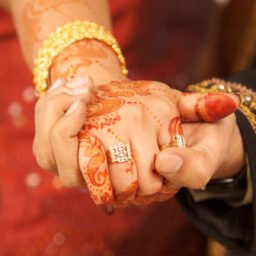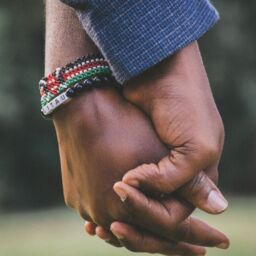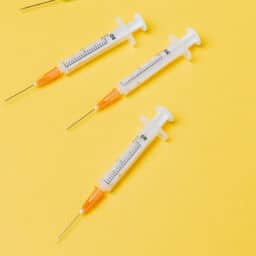INTRODUCTION
In India, when any minors commits heinous crime, the finest strategy and how to balance the punishment, justice and rehabilitation turn into more complex as compare to adult. When any awful offence has been committed by minor ineluctably raises many questions. According to our Juvenile Justice System, It is believed that if a minor commits any crime then it is considered as an act of stupidity, or spirit of adventure or lack of teaching and moral. The very famous Latin maxim “doli capax[1]”, which means the person incapable of forming an intention needed to conduct a crime. The emergence of Juvenile Justice System was first come into existence during the period of British era. The very first act implemented in India was Madras Children Act, 1920[2] and was followed in Bengal and Bombay in 1922 and 1924 respectively. Further, the minor was split into two categories: delinquent and negligent children and by this method minor kept in rehabilitative to modify their character, can be released with good character. And send for Imprisonment in the case of heinous crime. There has been law over Juvenile System in India consist of “Apprentices Act 1850; The Reformatory School Act, 1976 and Children Act 1980, etc. and the most influential one Juvenile Justice (Care and Protection of Children) Act, 2000.[3] Later amended in the year 2006 and 2015.
WHO IS JUVENILE?
Juvenile refers to an individual who is under the age of 18 but above the age of 10 years. That term means a teenager, very young, underage, childish and immature. Sometimes “child” is also used instead of “juvenile”.
In a legal language, Juvenile is a child who has not attained the certain age at which he would not held accountable for any criminal act alike an adult in the country. He/She is a person who committed an act or omission which is legal a violation of law but not declared as an offence. According to Juvenile Justice Act, 2000, if a juvenile commits any crimes he should not be treated as an adult person when they commits crime and also not trail in court of law for punishment.
WHY JUVENILE INDULGE IN SUCH CRIMEAL ACTIVITIES?
According to National Crime Records Bureau (NCRB), 60% of the crimes committed against minors in India usually held between the age of 16 and 18 year, as per the report of 2013.[4] The level of crimes has increased in recent year, and those crimes also included the modesty of women being outraged. Generally, there is plenty of reason which contributes regarding youth criminal nature. There are certain grounds behind such crimes: Social reasons, Psychological reasons, and Economic reasons[5].
- Social Reasons
Family, Bad Atmosphere, War, Criminal Scene, Social Media, Social disorganization, War, Entertainment etc.
- Economic Reasons
Poverty, Family conflict, Starvation, Employment of children etc
- Psychological reasons
Mental Disease, Personality Traits, Emotional instability etc.
Crimes committed by the children the specific age called as juvenile delinquency.
JUVENILE JUSTICE (CARE AND PROTECTION) SYSTEM, 2000
The Juvenile Justice Act, 2000’s main aim is to provide protection for such children. The incident of “Delhi Gang Rape Case[6]” literally frightful in which one of an offender was minor done such a heinous crime. While the other criminal sentenced to death, the minor accused was only sentenced to imprisonment for mere three years.[7]. After such pathetic incident it forced everyone to think whether the minor, in this case, was not mature enough as the others accused, he is not “guilty mind” or whether minor are not capable of establish “intention for committing such heinous crime[8].
Nirbhaya case brings out certain amendment in the Juvenile Justice Act. On 31st December 2015, Juvenile Justice (Care and Protection of Children) System implemented[9].
MAJOR FEATURES OF THE JUVENILE JUSTICE ACT, 2015
- To establish Juvenile Justice Board in the every district to tackle and solve the dispute among children going through, with the law.
- To upraise the formation and power of Juvenile Justice Board.
- Open rehabilitation centre for such children, as predicted in Fundamental Principles and Preamble.
- Section 12 (2)[10] of the Juvenile Justice Act, 2015 defines a child “a person who has not complete 18 year age”. Two major head of the children “child needs proper care and protection” and “child in conflict with law.”
- Split the crimes of juvenile into two categories: a) Petty, b) Serious, c) heinous.
- The Juvenile Board will contain psychologists and social experts.
ARE THE AMENDMENTS GOING TO STOP THE MENACE – A CRITICAL ANALSIS
The one of the well-known lawyer of Delhi High Court stated “by suggesting change in the juvenile justice system the Government has not done justice, the new juvenile law will not reform a juvenile but school him in crime. It is a serious deviation from the system of ‘parenspatriae’, a doctrine that believes that the State is the parent of the nation”. [11] After the incident of Delhi rape case (2012) and the Shakti Mills rape case[12], where juvenile was also found as an accused. The matter come forth that in what way to punish these juvenile, both the cases where the remaining accused were sentenced to death, but juvenile imprisoned for only three year for such heinous crime, in remand home and got away.
After this verdict, there were many question raises, a) how to punish enough to rectify a youth? b) How should be the punishment given to optimum positive result in changing the criminal characteristic and change them?
The number experts expressed their opinion on this matter in which most of them suggested to give them the most severe punishment, with iron fist. Further they added, treat them as adult accused if any juvenile who are about 16 years of age, commit heinous crime, must sent to jail by avoiding juvenile justice board. The expert said that they that the main aim of Juvenile Justice Board is reformative justice not retributive justice.
The three schools of thoughts have been pointed out[13]:
- The first one is to reduce the age.
- The second one that the Government should not confer with power to criticize child.
- The third one is that the Government has no right to interfere and only after inspection, child is treated an adult.
STAND OF JUDICIARY ON SUCH CASES
After the incident of Delhi Rape Case (2012), in which one of the accused was juvenile (under the age of 18) and tried before the Juvenile court. After the judgment delivered, so in 2013, A BJP politician, Mr. Subramaniam Swami filed a PIL in Supreme Court with an appeal to produce a juvenile accused of Delhi rape case in an ordinary court of law[14].
There judge bench refuse to indulge in the matter of juvenile cases found with heinous crimes. It was held that the provision of the Act is in agreement with constitutional directives and international conventions. The Supreme Court transfers the case to Juvenile Justice Board, to take best decision in which the board sent the juvenile to remand home for 3 years.
This judgement of Supreme Court was criticize by victim’s mother along with public, for not punishing juvenile as an adult and remarked that the court give a path to encourage a minor to commit such crime without any terror. After criticism, the Ministry of Women and Development make a draft, mention, the juvenile between 16 and 18 year of age should be treated as an adult if committed any heinous crimes viz. Rape, robbery, murder etc.
MEASURES TO REFORM SUCH CHILDREN
- Once a child noticed with some weird behaviour like frustrated, aggressive and etc., one must not ignore such behaviour of the child.
- It is essential to bring out a positive change in society to encourage such behaviour.
- Introduce a feeling of affection, love and security among children.
- Parents, teacher, elder sibling or any relatives, if noticed some weird behaviour in children it is important to consult with them about their behaviour and noticed their early signs; this may assist to ruin the tendency of criminal mind at the root.
- Introduce a sense of social and moral values among children.
REHABILITATION CENTRE FOR SUCH CHILDREN
There are numerous rehabilitation centre has been established for such minor who are in need of conflict with law and of care and protection. Here, these children are provided with services which contain education, nutrition, treatment of disease, health, de-addiction, skill development, counselling etc. This collectively them these children to develop their personality and character[15].
CONCLUSION
“A child is the father of the man”, this statement is literally true because it is a fact that whatever qualities and traits develop in the child, and will continues to stay with them till the end. With bad qualities and traits, we acquired such juvenile delinquency and vice-versa. There is nothing wrong in saying that each and every juvenile become a victim of situation, no one is wrong since born. It must be the accountability and duty of every individual of India whether he/she is a teacher, friends, parents, siblings and relatives, to teach and guide them at every step of life about right and wrong. It is for their welfare also for the society as whole. It is essential to extract badly from an individual, not an individual.
Author(s) Name: Ritika Srivastava (The ICFAI University, Dehradun)
References:
- Kedar Mrinal, ‘Juvenile Criminal Process in India’ (2020), ejusticeindia.com < Juvenile Criminal Process In India – E-Justice India (ejusticeindia.com)> accessed on27th June 2021.
- Madhusudhanan Ananya, ‘Juvenile Delinquency and Justice System in India’ (2020), Indian Law Portal < Juvenile Delinquency and Justice System in India – Indian Law Portal> accessed on 25th June 2021.
- Mishra, Prof. S.N., Indian Penal Code, 22nd Edition (2020), Central Law Agency, Prayagraj.
- Joshi Shwet, ‘Juvenile Delinquency’ (2021), ISBN No: 978-81-928510-1-3, Legal Services India <legalservicesindia.com/article518/Juvenile-Delinquency/html> accessed on 28th June 2021.
- Pradhan Rohit, ‘Critical Analysis: Juvenile Justice (Care and Protection of Children) Act 2015’ (2020), < Critical Analysis: Juvenile Justice (Care and Protection of Children) Act 2015 (lexforti.com)> accessed on 28th June 2021.
[1] Indian Penal Code, 1860, § 82, No. , Acts of Parliament, 1860.
[2] Amritha Priya, ‘Child and Law: Child in Conflict with Law’, Ipleaders (June 23, 2021, 8:30 PM), Child and Law: Child in Conflict with Law – ipleaders.
[3] The Juvenile Justice (Care and Protection of Children) Act, 2015, No. 2, Acts of Parliament, 2015.
[4] Juvenile Crimes in India, IndiaCelebrating.com, https://www.indiacelebrating.com/social-issues/juvenile-crimes/ (last visited June 25, 2021).
[5] Juvenile Crimes in India, Thinks Knowledge, https://thinksknowledge.com/juvenile-crime-in-india (last visited June 23, 2021).
[6] Mukesh and Anr v. State of NCT of Delhi & Ors., (2017) 6 SCC 1.
[7] Neville Lazarus., Delhi Gang Rape: Four Men Sentenced to Death (2013), Sky News Producer (Delhi), (June 27, 2020, 10:19 PM), Delhi Gang Rape: Four Men Sentenced To Death | World News | Sky News.
[8] Supra Note 6.
[9] Ibid.
[10] The Juvenile Justice (Care and Protection of Children) Act, 2015, § 12(2), No. 2, Acts of Parliament, 2015.
[11] Whether Minors Committing Heinous Crimes Should Be Treated As Juvenile?, Helplinelaw.com, https://www.helplinelaw.com/employment-criminal-and-labour/MCHCO/whether-minors-committing-heinous-crimes-should-be-treated-as-juvenile.html (last visited June 27, 2021).
[12] State of Maharashtra v. Vijay Mohan Jadhav & Ors., 2019 SCC Online Bom. 2001.
[13] Supra Note 13.
[14] Dr. Subramanian Swamy: Delhi gang-rape: Dr. Swamy to file petition in SC to quash verdict, Swamy39.blogspot.com, https://swamy39.blogspot.com/2013/09/delhi-gang-rape-dr-swamy-to-file.html (last visited June 27, 2021).
[15] Rehabilitation of Juveniles, Ipleaders, https://blog.ipleaders.in/rehabilitation-of-juveniles/ (last visited June 29, 2021).
















